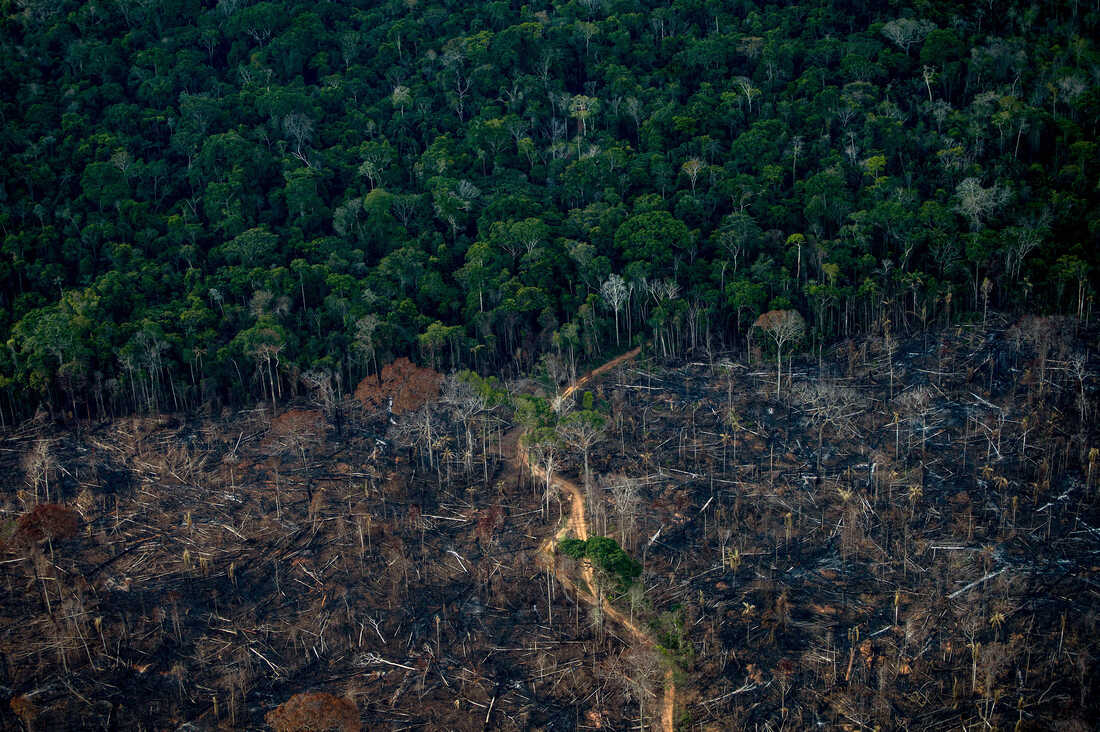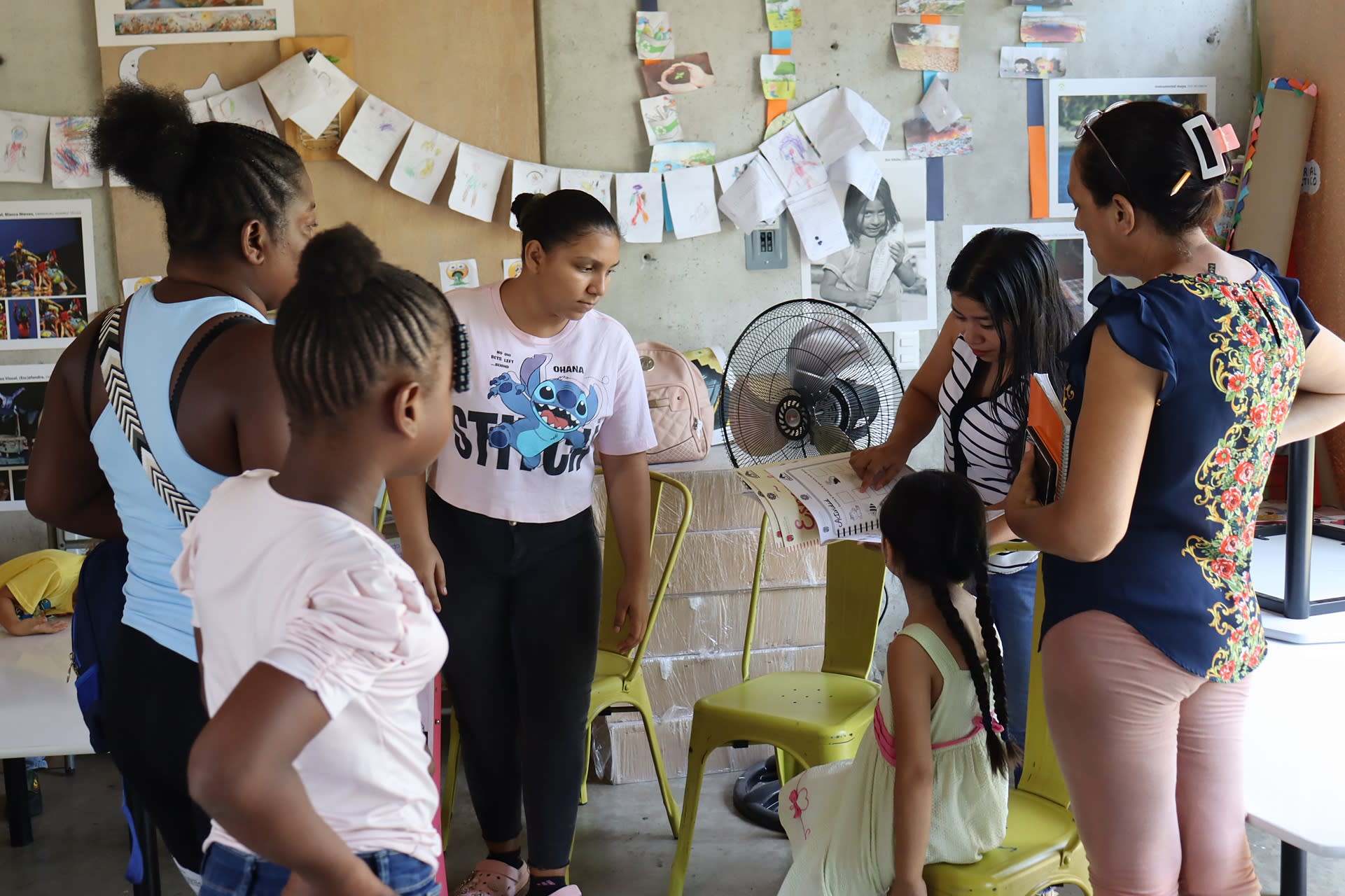International
Indigenous lands block Brazil deforestation: study

AFP
Brazil’s indigenous reservations have acted as a barrier against deforestation over the past three decades, although destruction of the Amazon rainforest has accelerated recently under President Jair Bolsonaro, according to a study published Tuesday.
Of the 69 million hectares (266,000 square miles) of native vegetation Brazil has lost in the past 30 years, just 1.6 percent was on indigenous lands, said the report from MapBiomas, a joint project among various environmental groups, universities and startups.
Around 70 percent of the deforested area was on private land, it found.
“The satellite images leave no doubt that indigenous peoples are slowing the destruction of the Amazon,” said Tasso Azevedo, the coordinator of the project.
“Without indigenous reservations, the forest would certainly be much closer to the ‘tipping point’ at which it stops providing the ecological services our agriculture, industries and cities depend upon.”
It is the latest of numerous studies to show that protecting indigenous lands is one of the best ways to slow the destruction of native forests, which are vital resources in the race to curb climate change.
Indigenous reservations account for 13.9 percent of Brazil’s territory, covering 109.7 million hectares of native vegetation — nearly one-fourth of the country’s total.
But they face increasing pressure under Bolsonaro, an agribusiness ally who won election vowing not to allow “a single centimeter more” of indigenous reservations to be created.
Since the far-right president took office in 2019, average annual deforestation in the Brazilian Amazon has increased by more than 75 percent from the previous decade, according to official figures.
Central America
Trump Administration Asks Supreme Court to Block Return of Deported Salvadoran

The Trump administration on Monday asked the U.S. Supreme Court to block a lower court order requiring the return of a Salvadoran migrant who was mistakenly sent to a maximum-security prison in El Salvador, despite having legal protection from deportation.
The U.S. government has until Monday to bring Kilmer Armado Ábrego García back to the United States, as ordered by Judge Paula Xinis in a Maryland court.
According to The Washington Post, the administration argues it lacks authority to comply because Ábrego García is currently in Salvadoran custody.
The U.S. had appealed Judge Xinis’ ruling to the Fourth Circuit Court of Appeals, but the court declined to act immediately—prompting the administration to take the case to the Supreme Court. In its filing, the government stated that “the Constitution entrusts the President, not federal district courts, with the conduct of foreign diplomacy and the protection of the nation from foreign terrorists, including through deportation.”
Ábrego García, a resident of Prince George’s County, Maryland, and married to a U.S. citizen, came under scrutiny in 2019 after an informant claimed he was a member of the MS-13 gang (Mara Salvatrucha).
Although he was initially slated for deportation, a judge later granted him a stay of removal after he requested asylum, according to the lawsuit.
Nevertheless, U.S. Immigration and Customs Enforcement (ICE) detained him on March 12, claiming his status had changed, and sent him to a detention center in Texas.
International
Teachers in Southern Mexico Bring Education to Stranded Migrant Children

Teachers in southern Mexico have created a program to provide classes for migrant children stranded in the region, following a year-over-year increase of over 70% in irregular migration among minors—many of whom lose months or even years of education during their journey toward North America.
In Tapachula, the largest Mexican city bordering Central America, three teachers offer preschool, elementary, and secondary education through the Chiapas State Migrant Education Program (Pemch).
This initiative has been replicated in key municipalities across Chiapas, including San Cristóbal de Las Casas, the capital Tuxtla Gutiérrez, Palenque, Comitán, and other border towns. Currently, there are around 1,345 migrant students and a total of 35 teachers working across farms and shelters.
Pablo Arriaga Velázquez, a teacher with the migrant education program in Tapachula, told EFE that the project was born in response to the large number of migrant minors, as enrolling them in regular schools is often difficult.
Central America
Mulino and Orsi Highlight Shared Vision After Panama Joins Mercosur as Associate State

The Presidents of Panama, José Raúl Mulino, and Uruguay, Yamandú Orsi, highlighted on Monday the path of integration both countries have undertaken in areas such as trade and the defense of democracy, following a meeting held at the Panamanian government headquarters.
In a brief statement to the press, both leaders emphasized that Panama and Uruguay share many values and are working together across different sectors. They also underlined a renewed connection following Panama’s accession last December to the Southern Common Market (Mercosur) as an Associated State.
“Panama has begun a new era of looking southward, seeking opportunities not only for work, business, and friendship, but also for regional integration in a positive sense. Today, I believe we have taken a decisive step in that direction,” said President Mulino.
The Panamanian leader stressed that his country and Uruguay “have much in common” and share “important values in terms of democracy, respect for institutions, and the rule of law—principles that must always be strengthened, no matter how much effort it takes.”
-

 Internacionales2 days ago
Internacionales2 days agoErik Prince Backs Ecuador’s Daniel Noboa in Fight Against Crime and “Narcoterrorism”
-

 Central America4 days ago
Central America4 days agoPanama’s former president Martinelli claims political enemies tried to kill him
-

 Central America2 days ago
Central America2 days agoGuatemala’s Legal Chief Shot Dead in Parking Lot: Investigation Underway
-

 International4 days ago
International4 days agoJavier Milei vows to work ‘side by side’ with the U.S. on trade rules
-

 Central America14 hours ago
Central America14 hours agoHonduras Hosts CELAC Summit Amid Regional Concern Over U.S. Deportations
-

 International14 hours ago
International14 hours agoTeachers in Southern Mexico Bring Education to Stranded Migrant Children
-

 Central America14 hours ago
Central America14 hours agoMulino and Orsi Highlight Shared Vision After Panama Joins Mercosur as Associate State
-

 Central America14 hours ago
Central America14 hours agoTrump Administration Asks Supreme Court to Block Return of Deported Salvadoran















